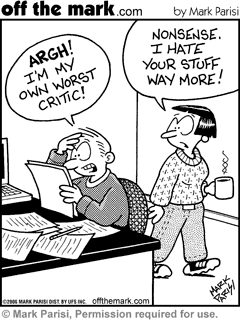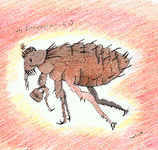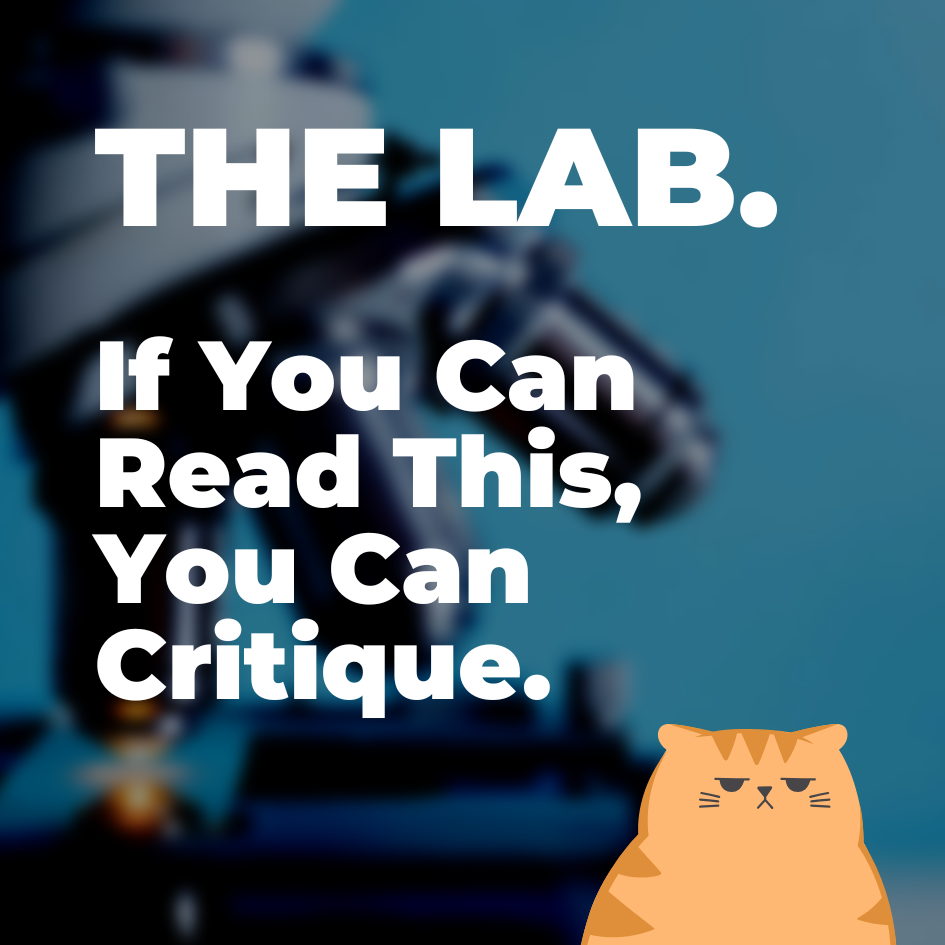Paul Whybrow
Full Member
On the Colony, we're fortunate to be able to get our writing critiqued by fellow writers, including Agent Pete, in a calm, considerate and constructive way. But, nastier criticism may erupt should your book ever be published, to be reviewed by hired guns working for newspapers and journals, as well as by everyday readers posting their comments online.
Ambling around the internet this morning, I came across this well considered article on bad reviews:
On Bad Reviews - The Millions
(The link in the article to Alice Hoffman's meltdown is broken, so try this one.)
Writer of the article, Canadian novelist Emily St. John Mandel has previous form as an astute commentator on publishing trends.
I think that the best attitude to have with reviews, is that of Joanna Smith-Rakoff, who doesn't read any of them—good or bad.
I have a jaundiced attitude towards reviewers, born of experience and an
As for reviews and comments left by members of the public on sites like Amazon and its book review arm Goodreads, some are thoughtful, while others are the demented rantings of trolls. I helped to manage a community centre for four years, which had a free computer suite. One of the regular users was a creepy dude who spend a lot of time posting inflammatory comments online—he hadn't even read the thread concerned. Eventually, he was banned for trying to access prohibited sites. I could never work out how his mind worked, for he lived in a world of hate, trying to drag everyone down to his pitiful level.
Some brilliant observations of critics have been made over the years:
*Don't be dismayed by the opinions of editors, or critics. They are only the traffic cops of the arts.
Gene Fowler.
*Critics are like eunuchs at an orgy.
Anonymous
*A critic is like a legless man who teaches running.
Channing Pollock
*Asking a working writer what he thinks about critics is like asking a lamp-post how it feels about dogs.
Christopher Hampton
*A critic is a man who knows the way but can't drive the car.
Kenneth Tynan
*I think what I try to do with all of the naysayers, negative comments, or even people that think you can't do it, is I'm trying very hard to use it as motivation and to add that chip on my shoulder.
Erin Andrews
I think, that if a book reviewer is also an author, then their opinion might have some validity, though there have been plenty of literary feuds spawned by spiteful reviews
My attitude towards self-doubt, while writing a novel, and towards any criticism that may come my way when it's published, mirrors the advice given by Hilary Mantel:
The most helpful quality a writer can cultivate is self-confidence—arrogance, if you can manage it. You write to impose yourself on the world, and you have to believe in your own ability when the world shows no sign of agreeing with you.
I decided long ago, that there is zero point in beating myself up. Such an attitude is ideal for being a writer. In four years, I've been told "NO!" 400 times through rejected queries, so my already thick hide is now bulletproof!
It may be because I've gone through so much shit in my life, that I've developed a mindset where I really don't give a damn what people think of me—apart from a few valued friends. I'm more concerned with pleasing myself, by producing stories that are of high quality. What I'm finding hard to come to terms with, is that I've actually entered a Popularity Game, in which I have to appeal to lots of people—agents, publishers, potential readers, actual readers who've bought the book + all the attendant publicity twerps, like journalists and media reporters who I'm meant to cosy up to in an attempt at favourable publicity.
As for critics, I really don't have the time for them. I'm reminded of something that Edgar Rice Burroughs had his hero Tarzan of the Apes say, when he was criticised:
"Does a lion listen to the yapping of the jackals?"
What is your attitude to being criticised?
Does it destroy you, or do you use it as a basis for improving...or, do you dismiss it as jealousy?






